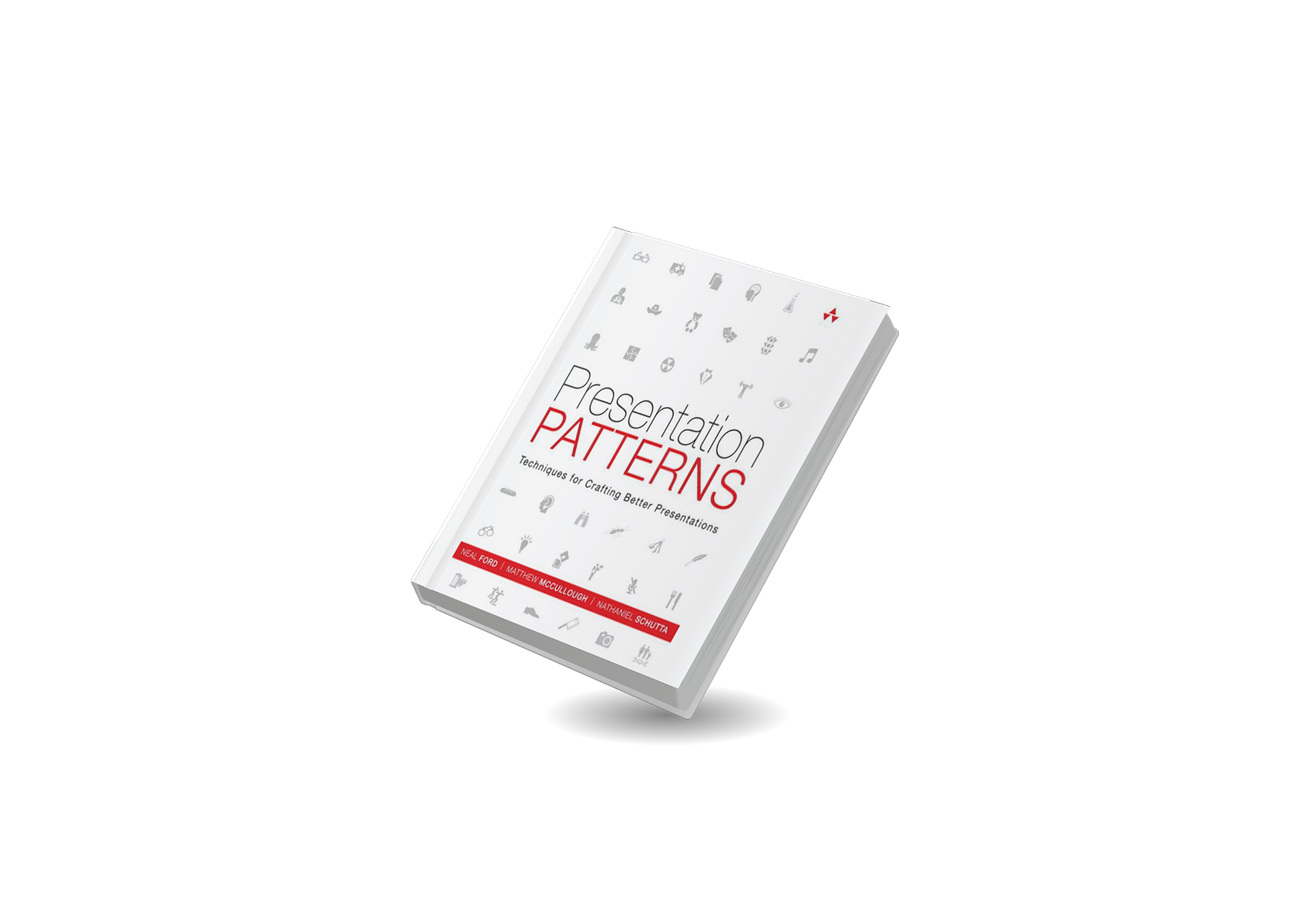Book
Author: Neal Ford


Create technical presentations that make an impact on your audience
Too many presentations are boring. That’s a big problem: it means important information isn’t being communicated, and insight and ideas that should make an impact are failing to hit their mark.
Presentation Patterns is a book intended to bring bad presentations to an end. And although it was first published in 2012, today it’s more relevant than ever as we adapt to a world of endless — and sometimes soporific — remote presentations in a post-pandemic world.
Dive in and explore presentation patterns that make information pop, and uncover anti-patterns you need to avoid. Based on years of delivering and listening to technical presentations, this practical guide will make you a more effective communicator that always leaves a lasting impression on their audience.
Presentation Patterns is a book intended to bring bad presentations to an end. And although it was first published in 2012, today it’s more relevant than ever as we adapt to a world of endless — and sometimes soporific — remote presentations in a post-pandemic world.
Dive in and explore presentation patterns that make information pop, and uncover anti-patterns you need to avoid. Based on years of delivering and listening to technical presentations, this practical guide will make you a more effective communicator that always leaves a lasting impression on their audience.
About the author

Neal Ford
Director, Software Architect and Meme Wrangler at Thoughtworks
He is also the designer and developer of applications, articles, video presentations, and author and/or editor of an increasingly large number of books spanning a variety of subjects and technologies, that includes two most recent Fundamentals of Software Architecture and Building Evolutionary Architectures. His professional focus includes designing and building of large-scale enterprise applications. He is also an internationally known speaker, speaking at over 700 developer conferences worldwide, delivering more than 3000 presentations.
















